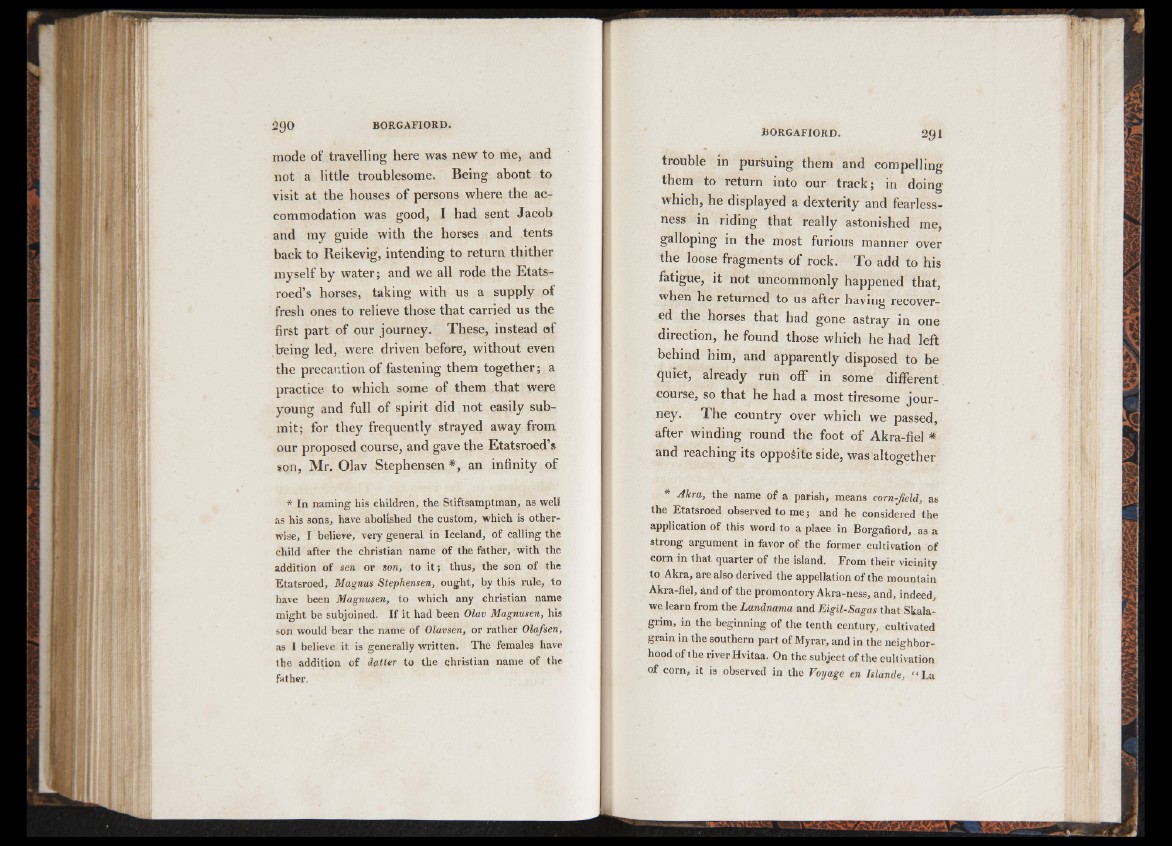
mode of travelling here was new to me, and
not a little troublesome. Being abont to
visit at the houses of persons where the accommodation
was good, I had sent Jacob
and my guide with the horses and tents
back to Reikevig, intending to return thither
myself by water; and we all rode the Etats-
roed’s horses, taking with us a supply of
fresh ones to relieve those that carried us the
first part of our journey. These, instead of
being led, were driven before, without even
the precaution of fastening them together; a
practice to which some of them that were
young and full of spirit did not easily submit;
for they frequently strayed away from
our proposed course, and gave the Etatsroed’s
son, Mr. Olav Stephensen *, an infinity of
* In naming his children, the Stiftsamptman, as well
as his sons, have abolished the custom, which is otherwise,
I believe, very general in Iceland, of calling the
child after the Christian name of the father, with the
addition of sen or son, to it; thus, the son of the
Etatsroed, Magnus Stephensen, ought, by this rule, to
have been Magnusen, to which any Christian name
might be subjoined. If it had been Olav Magnusen, his
son would bear the name of Olavsen, or rather Olafsen,
as I believe it is generally written. The females have
the addition of datter to the Christian name of the
father.
trouble in pursuing them and compelling
them to return into our track; in doing
which, he displayed a dexterity and fearlessness
in riding that really astonished me,
galloping in the most furious manner over
the loose fragments of rock. To add to his
fatigue, it not uncommonly happened that,
when he returned to us after having recovered
the horses that had gone astray in one
direction, he found those which he had left
behind him, and apparently disposed to be
quiet, already run off m some different
course, so that he had a most tiresome journey.
The country over which we passed,
after winding round the foot of Akra-fiel *
and reaching its opposite side, was altogether
* Akra, the name of a parish, means corn-field, as
the Etatsroed observed to me; and he considered the
application of this word to a place in Borgafiord, as a
strong argument in favor of the former cultivation of
corn in that quarter of the island. From their vicinity
to Akra, are also derived the appellation of the mountain
Akra-fiel, knd of the promontory Akra-ness, and, indeed,
we learn from the Landnama and Eigil-Sagas that Skala-
grim, in the beginning of the tenth century, cultivated
grain in the southern part of Myrar, and in the neighborhood
of the river Hvitaa. On the subject of the cultivation
of corn, it is observed in the Voyage era Islande, “ La